In Australia and New Zealand, compliance regulations for Electric Vehicle (EV) chargers are established to ensure safety, performance, and compatibility with the existing electrical infrastructure. These regulations cover various aspects, including the type of plugs used, the modes of charging, and the levels of power delivery.
The chargers in use can be categorized based on their plug types, charging modes, and power capacities. Among these, Type 1 and Type 2 plugs are the most commonly used in Australia.
Type 1 Chargers
These are single-phase chargers that can deliver up to 7.4 kW of power. This is equal to roughly 30-45 km of range for each hour of charging time. They are typically used for slower charging applications and are compatible with a range of electric vehicles.
Type 2 Chargers
These chargers are more common and adhere to the European standard. They are three-phase chargers capable of delivering up to 22 kW of power, making them suitable for faster charging needs and a broader range of electric vehicles.
Equipment like an Electric Vehicle charge cable equipped with a Charging Circuit Interrupting Device (CCID) and an integrated Residual Current Device (RCD) are considered in-scope Level 1 equipment according to the AS/NZS 4417 standard.
Below are the key aspects of the compliance requirements:
Electrical Safety Standards:
- AS/NZS 3000 (Wiring Rules): Ensures the safety of electrical installations.
- AS/NZS 3008: Covers selection of cables for alternating voltages up to and including 0.6/1 kV.
- AS/NZS 3112: Standards for plugs and socket outlets.
- AS IEC 62196.2.2014 – Plugs, socket outlets, vehicle connectors of electric vehicles
Specific Standards for EV Chargers:
- AS/NZS 4777: Grid connection of energy systems via inverters.
- AS/NZS 3000:2018: Wiring rules that apply to the installation of EV chargers.
- AS/NZS 3001: Electrical installations – Relocatable premises and vehicles.
- AS/NZS 3019: Inspection and testing of electrical installations.
Regulatory Bodies:
- EESS (Electrical Equipment Safety System): For electrical safety regulation.
- ERAC (Electrical Regulatory Authorities Council): Oversees the regulatory framework.
- CEC (Clean Energy Council): Provides guidelines and certification for renewable energy systems, including EV chargers.
Compliance Requirements:
- Product Certification: EV chargers must be certified by an accredited testing laboratory.
- Installation Certification: Installation must be performed by licensed electricians and comply with AS/NZS 3000.
- EMC Compliance: EV chargers must meet ElectroMagnetic Compatibility requirements.
Certification Process
Product Testing
EVSE must undergo rigorous testing by accredited laboratories to ensure compliance with the above standards. Tests include electrical safety, ElectroMagnetic Compatibility (EMC), and environmental testing.
Certification
Once testing is complete, a certification body evaluates the test results.
[Currently, Electric Vehicle Charging Stations have not been explicitly categorized as either in-scope or out-of-scope by the Regulating Authority. However, AC Stations do meet the criteria for ‘in-scope’. If it is claimed that they are out-of-scope, they must still comply with AS/NZS 3820 as per the relevant Regulations.]
If the EVSE meets all required standards, it is entitled for a certification mark, such as the Regulatory Compliance Mark (RCM).
Supplier Declaration of Conformity (SDoC)
Manufacturers or suppliers must complete an SDoC, declaring that the EVSE complies with all applicable standards. The SDoC is a legal document that must be kept on record and made available upon request by regulatory authorities.
Labelling
Certified EVSE must be appropriately labelled with the RCM. The label indicates that the product meets all electrical safety and EMC requirements.
Ensuring compliance with the minimum electrical safety and certification requirements for EVSE in Australia and New Zealand is crucial for the safe and reliable operation of electric vehicles and plug-in hybrid vehicles. Adhering to the relevant standards and undergoing the proper certification process protects consumers and supports the growth of the EV market.
C-PRAV (Compliance & Product Regulatory ApproVals) is well positioned to guide you and ensure your product is compliant with the appropriate regulations so you can deploy your product to end users.
@C-PRAV, we are here to help you! Contact team C-PRAV at australia@C-PRAV.com
